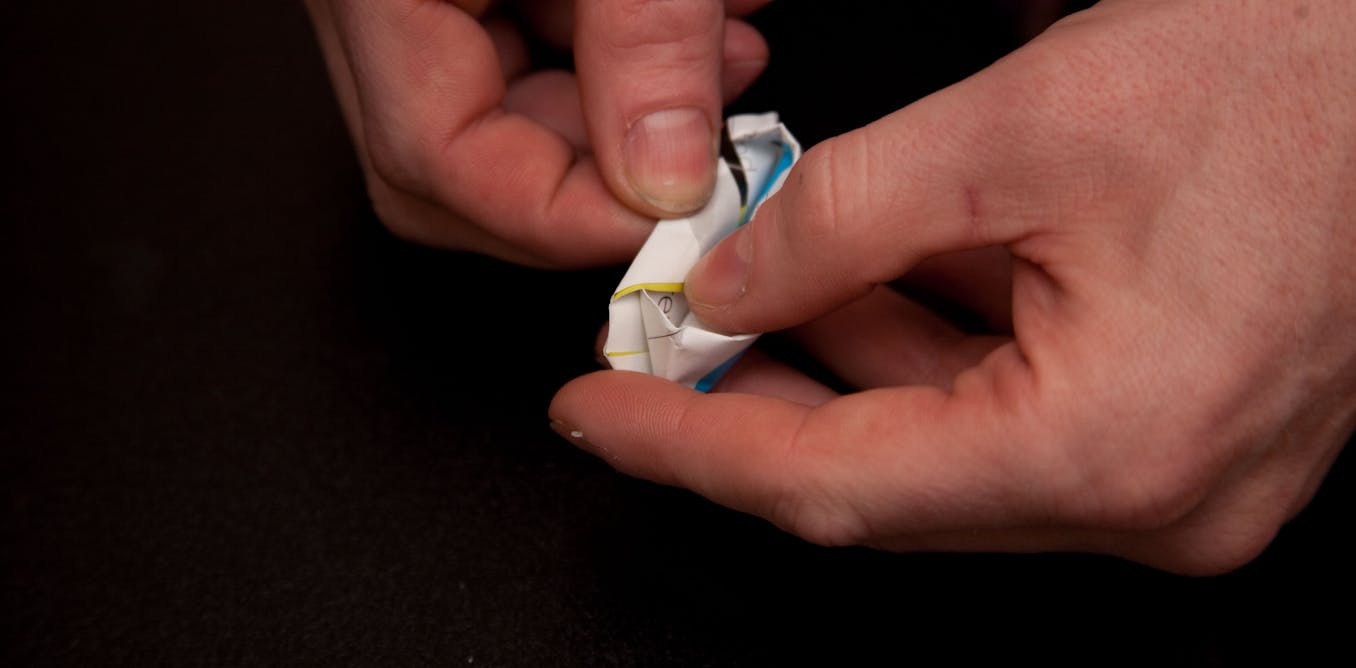what you need to know about the UK’s growing drug problem

مجلة المذنب نت متابعات عالمية:
There is growing awareness of the problems caused by the use of a fast-acting drug called ketamine. Often referred to as K or ket, it was made a class B drug in the UK in 2014 and is illegal to buy or sell. Possessing the drug can lead to a maximum five-year prison sentence and supplying the drug up to 14 years in prison.
Ketamine is an effective anaesthetic and plays an important part in battlefield and emergency medicine. It is used to treat pain in end-of-life care and could treat some forms of depression. However, it is its non-medical use that is causing concern among some doctors and specialist drug-treatment providers.
On the illicit market, ketamine is cheaper than cocaine and MDMA (ecstasy), costing about £20 a gram. Police forces report large seizures of the drug, but global rates of production are high, and the wholesale price of a kilogram of ketamine is believed to have fallen from £8,000 to £5,000. This makes it an attractive drug for young people and those with a limited income.
Ketamine typically takes about 15 minutes to work and induces euphoria, relaxation and a slight sense of detachment. However, with higher doses it can also cause dissociation. This can be confusing and can cause panic attacks and memory loss. It can increase blood pressure and affect breathing and heart function.
Effects can also be fatal. The Friends actor Matthew Perry died in 2023 as a result of using the drug.
Some urologists have also expressed concern about an increase in bladder problems (so-called “ketamine bladder”) as a result of prolonged and heavy use of the drug. Although national data about the number of people with ketamine bladder is not available, there are other sources about the use of ketamine.
Ketamine first became popular as a recreational drug in the early 1990s. Use among people aged 16-24 in England and Wales rose from 0.9% in 2006-07 to 3.8% in 2022-23 – which is about 220,000 people.
There has been an increase in young people attending specialist treatment services with problems related to ketamine use: 512 during 2021-22 rising to 719 in 2022-23.
The increase is concerning as few services and interventions are available that specifically address ketamine use. An increase in people seeking treatment has not been helped by historic cuts to drug-treatment funding, which is only beginning to be addressed, and a lack of meaningful drug education and early intervention responses.
This increase in young people seeking treatment is also seen in adults. Rising from 1,551 in 2021-22 to 2,211 during 2022-23. There has been a fivefold increase in adult treatment since 2014.
Self-medicating
There is a suggestion from experts that part of the increase in the use of ketamine is due to some people who have mental health problems that are unable to access treatment because of long waiting lists.
Rather than wait for specialist treatment some people turn to drugs like ketamine that offer some reprieve from their symptoms. Ketamine can create a sense of detachment in users, this will be a desirable state for those who are seeking to escape invasive mental health symptoms of troubling thoughts and feelings.
In effect, they are finding their own solutions by self-medicating with the drug. Given that ketamine is easily available, relatively cheap and fast-acting it is easy to see why this drug is appealing, particularly as there are no long waiting lists or invasive assessments to undergo.
Ketamine doesn’t induce the same type of hangover that alcohol and other drugs do. This makes it appealing to those who need to be at work the day after using it. Likewise, it is appealing to those on zero-hour contracts who are asked to work at short notice.
Kathy deWitt / Alamy Stock Photo
However, many people will use other substances alongside ketamine – typically alcohol. Mixing alcohol and ketamine can cause significant harm, ranging from slowed breathing to coma and even fatal overdose.
Paradoxically ketamine is being investigated as a treatment for those who are dependent on alcohol, including those who haven’t responded to more traditional forms of therapy.
As with the promise that other drugs, such as psychedelics, might help treat mental health problems, current evidence suggests that these drugs are only effective when given alongside therapy.
It’s not clear whether the UK has reached peak ketamine use. Most drugs fall in and out of fashion. It is clear that originally banning the drug in 2005, and increasing punishments in 2014 has failed to halt its rising popularity. What could have helped was investment into prevention, education and harm reduction services, but this didn’t happen and we are seeing some of the consequences now.
Preventing the use of ketamine is the only way to be sure that it won’t cause harm. But if we accept that young people and adults will continue to use it then we should be aiming to reduce the potential for harm. There are useful resources already available, but reducing drug-related harm requires a more active response – one that doesn’t rely on people visiting websites or reading a leaflet.
We should put effort and resources into providing public health messaging that reaches those who are at the most risk from harm due to ketamine. At the same time, investing in and providing timely mental health support would reduce the need for those who are self-medicating with the drug.
With a new government in the UK, commanding a sizeable majority in parliament, could this Labour government adopt a policy shift that could reduce suffering and save lives?
نشكركم على قراءة المنشور عبر مجلة المذنب نت, المتخصصة في التداول والعملات الرقمية والمشفرة














